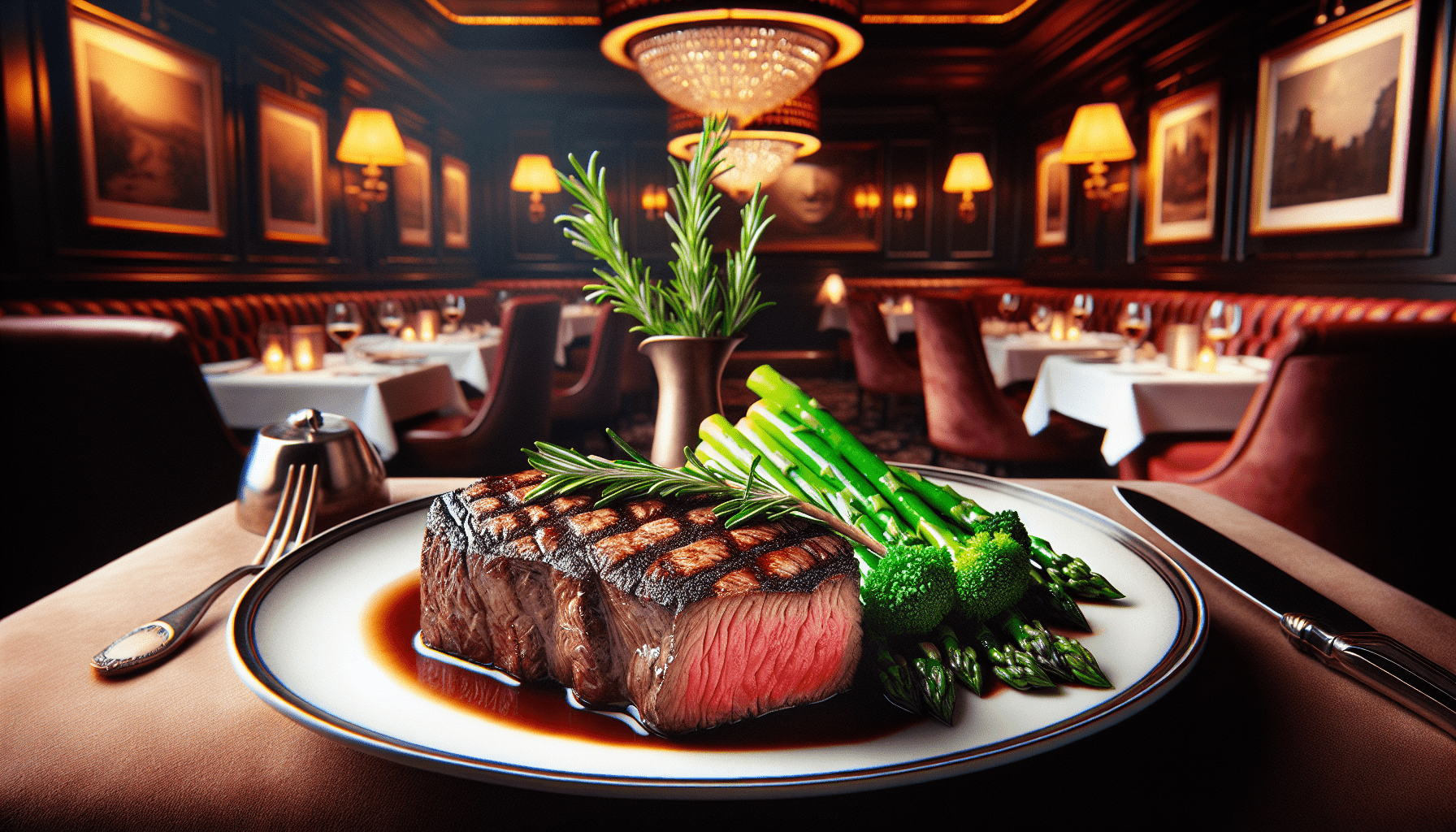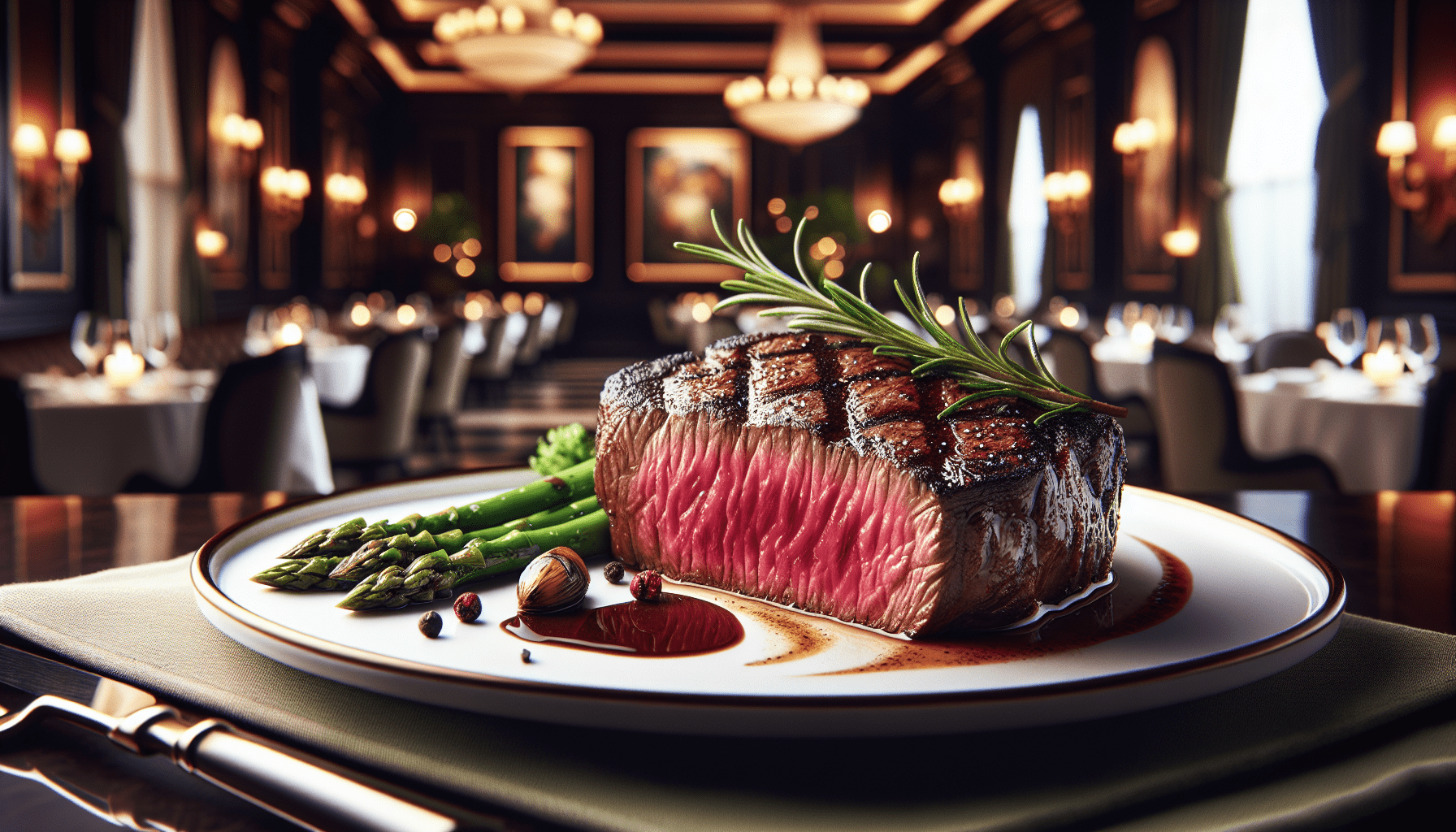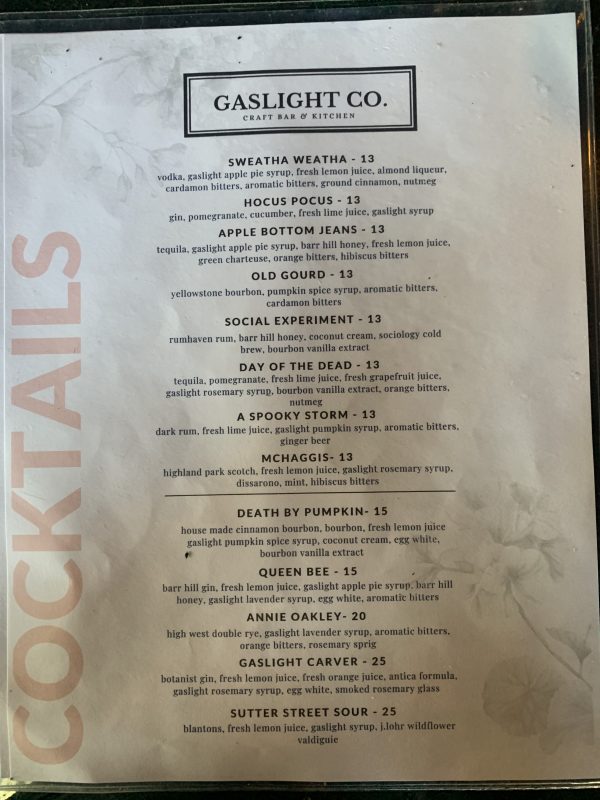TSA Approved Cable Luggage Locks, Re-settable Combination with Alloy Body
$23.95 (as of April 22, 2025 06:42 GMT +00:00 - More info)Have you ever found yourself wondering how renowned chefs make their choice when dining at a steakhouse? Going out for a steak dinner is the ultimate treat — but pick the wrong place, and it can be an expensive mistake. So if you’re looking beyond one of the best steakhouse chains and have decided to try somewhere new, how can you tell if it’s going to be good?
To get the inside scoop, we turned to Sean Thompson, executive chef of Porter House Bar and Grill in New York City, to share some expert tips. Thompson reveals that he always thinks “like a chef” when he dines out, focusing on every detail, from the menu to the ambiance. Let’s delve into the green flags chefs look for when dining at a steakhouse.

Get an Official Zagat Restaurant Guide
Prime Meat and Dry-Aging Programs
One of the first things your eye should gravitate toward on a steakhouse menu is the quality of the meat. “An obvious sign is serving all prime meat with an excellent dry-aged program accompanied by an exquisite wine list,” Thompson says. But what does that mean in practice?
What is Prime Meat?
Prime meat is the highest quality grade given by the USDA. It’s known for its abundant marbling and tenderness. When a steakhouse lists prime meat, you’re a step closer to enjoying a superior dining experience.
The Importance of Dry-Aging
Dry-aging meat is another key factor. This process enhances the flavor and tenderness of the beef. Keep an eye out for aging chambers or specific details on the menu. The dry-aging process adds depth of flavor, so the beef tastes extra-rich while also making the steak more tender and succulent thanks to the way it draws out and redistributes moisture.
Ask Questions
Don’t hesitate to ask your server about the aging process if the details aren’t on the menu. Ideally, meat should be aged between 30 to 45 days. This period allows for the meat to develop a deeper flavor profile without becoming overpowering.
| Green Flag Indicator | Details |
|---|---|
| Prime Meat | Highest quality grade, abundant marbling, tender |
| Dry-Aging | 30-45 days is ideal, enhances flavor and tenderness |
A High-Caliber Wine List
No steak dinner is complete without the perfect glass of wine. “The options should be high caliber,” says Thompson. A good steakhouse will have a well-curated wine list that pairs beautifully with their meat offerings.
Importance of Wine Pairings
Different cuts of beef pair better with different wines. For example, a robust red like Cabernet Sauvignon pairs well with a ribeye, while a lighter red like Pinot Noir complements a filet mignon. See if the menu includes suggested pairings or ask a sommelier for recommendations.
Wine List Variety
Look for a wine list that offers a mix of both well-known brands and smaller, boutique labels. This variety indicates that the steakhouse has put thought into their selections and aims to cater to different tastes.
| Green Flag Indicator | Details |
|---|---|
| Curated Wine List | High caliber, well-selected options |
| Suggested Pairings | Indicates attention to detail and pairing expertise |
| Variety | Mix of well-known and boutique labels |

Get an Official Zagat Restaurant Guide
Seasonal Ingredients Beyond Steak
While the steak is often the star of the show, a top-notch steakhouse will also pay close attention to its appetizers, side dishes, and even desserts. “When the menu is updated seasonally, you know you’re in a steakhouse that looks beyond meat and potatoes,” says Thompson.
Seasonal Produce
When checking the menu, look for ingredients that are in season. Seasonal produce is more likely to be fresh and flavorful compared to out-of-season options. For example, in the summer, you might see dishes featuring fresh corn or tomatoes, while winter menus might include hearty root vegetables.
Specials and Updates
Keep an eye out for daily or weekly specials. These often highlight seasonal ingredients and show that the steakhouse values freshness and innovation. Seasonal specials can be a great way to try something new and exciting.
Seasonal Desserts
Don’t forget to check the dessert menu for seasonal offerings. Desserts made with fresh, in-season fruits like berries in the summer or apples in the fall will be more vibrant and delicious.
The Chef’s Presence
A physical presence of the chef in the dining room can be a strong indicator of a restaurant’s commitment to quality. “When you see a chef’s presence in the dining room, it’s a clear sign that there’s passion involved,” says Thompson.
Why It Matters
A chef who frequently visits the dining area is likely more involved in the day-to-day operations, ensuring that each dish meets their high standards. This presence shows dedication and a hands-on approach to running the kitchen.
Interactions with Guests
If a chef is willing to come out and talk to guests, it also indicates a level of confidence in their food and a desire to connect with their patrons. This can drastically enhance your dining experience, making it more personal and enjoyable.
Attention to Detail in Ambiance
While food is paramount, the ambiance of a steakhouse contributes significantly to the overall dining experience. Look out for these key elements:
Comfortable Seating and Lighting
Comfortable seating and appropriate lighting create an inviting atmosphere. Even if a steakhouse is dimly lit, the experience should always feel bright and enjoyable.
Cleanliness
A clean and well-maintained dining area is an essential factor. Chefs notice the small details, such as polished cutlery, spotless glasses, and clean restrooms, which all contribute to a high-standard dining experience.
Thoughtful Decor
The decor should reflect the steakhouse’s identity. Whether it’s a rustic, Western-style steakhouse or a modern, upscale one, the decor should be cohesive and thoughtful.
Customer Service
Exceptional customer service is another green flag that chefs look for when dining out. A well-trained, attentive staff can elevate your overall dining experience.
Knowledgeable Staff
Staff members should be well-versed in the menu, able to answer questions, and make recommendations confidently. This shows that the restaurant values training and is committed to providing a quality experience.
Attentive and Efficient
Attentive service means staff are quick to refill drinks, clear plates, and attend to any needs without being overbearing. Efficiency ensures that your dining experience flows smoothly from start to finish.
Personalized Experience
A personalized touch, such as remembering your name or being aware of any dietary restrictions, goes a long way in making you feel valued as a guest.
Conclusion: Your Perfect Steakhouse Experience
By keeping these tips from expert chef Sean Thompson in mind, you’re well on your way to identifying those green flags that signify a standout steakhouse. From prime meat and dry-aging programs to a high-caliber wine list, seasonal ingredients, and exceptional customer service, these elements all contribute to a memorable dining experience. So the next time you’re out for a steak dinner, you’ll have the tools to choose a restaurant that promises not just a meal, but an experience worth savoring.
Summary Table
| Green Flag | Indicator |
|---|---|
| Prime Meat | High quality, abundant marbling, tender |
| Dry-Aging Program | 30-45 days ideal, enhances flavor |
| High-Caliber Wine List | Variety, suggested pairings, curated list |
| Seasonal Ingredients | Fresh, flavorful, innovative specials |
| Chef’s Presence | Dedication, quality, personal touch |
| Ambiance | Comfortable, clean, thoughtful decor |
| Customer Service | Knowledgeable, attentive, personalized |
Armed with this knowledge, you’re ready to savor every bite the next time you find yourself at a steakhouse, confident that you’ve chosen a place that meets the highest standards.
Get an Official Zagat Restaurant Guide






